A United Front Against FGM in the Arab World
Empowering Change: IPPF Arab World Region Strengthens Fight Against FGM with Acceleration Programme.
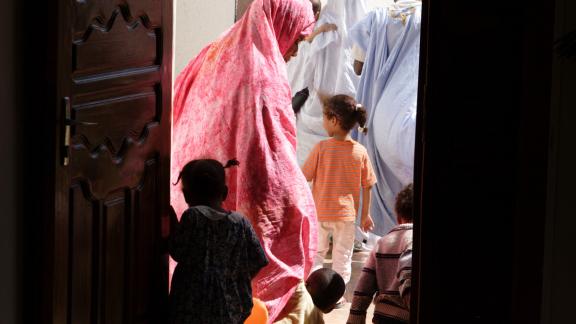

Gender equality is a human right. It is also essential for eradicating poverty and improving the lives of future generations. Gender equality is at the heart of all our programming and advocacy work. IPPF pushes for legal and policy reforms which combat female genital mutilation (FGM), early forced marriage and other forms of gender discrimination.

IPPF is thrilled to announce that the International Planned Parenthood Federation (IPPF) has been recognized as a Very High Performer in the 2024 Global Health 50/50 Gender and Health Index! This prestigious designation, coupled with our classification as a Consistently Strong Performer in trend performance, reflects IPPF's unwavering commitment to achieving gender equality. Transparency, strong governance with gender parity, and actively closing the gender pay gap are all cornerstones of our mission as a feminist organization. This recognition by Global Health 50/50 validates our ongoing efforts to create a truly equitable environment, both internally and within the global health landscape. Professors Sarah Hawkes and Kent Buse, Co-CEOs of Global Health 50/50, acknowledged IPPF's leadership, stating, “Global Health 50/50 is pleased to recognise International Planned Parenthood Federation (IPPF) as a Very High Performer in our 2024 Report, 'Gaining Ground?'. We hope that International Planned Parenthood Federation (IPPF)'s efforts to advance equality and diversity inspires others. We look to them to continue to push this hard won progress forward for the people working in global health and around the world." We are inspired by their words and committed to furthering this progress for the benefit of our staff and the communities we serve worldwide. Read the report here.
Empowering Change: IPPF Arab World Region Strengthens Fight Against FGM with Acceleration Programme.

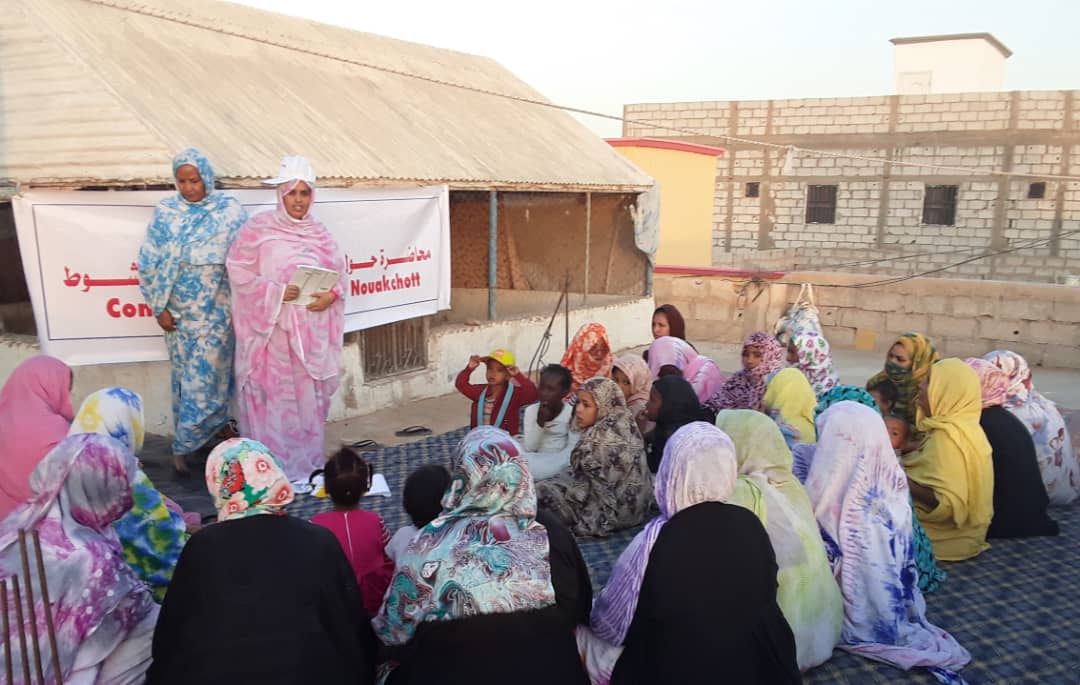
According to WHO more than 200 million girls and women alive today have undergone female genital mutilation (FGM) in 30 countries in Africa, the Middle East, and Asia where it is practiced. FGM is still highly prevalent across Mauritania: in 2021, 64% of girls and women aged 15-49 years have undergone FGM (in some regions, FGM prevalence is as high as 93%). Ending FGM and gender-based violence (GBV) still faces strong conservative barriers. The Association Mauritanienne pour la Promotion de la Famille (AMPF) is a member association of International Planned Parenthood Federation (IPPF). Since its foundation in 1988, AMPF has focused on sensitizing the general population and the country’s political and religious leaders to the personal, health, and economic benefits of family planning and promoting and providing voluntary sexual and reproductive health (SRH) services. AMPF is one of the strongest advocates against gender-based violence (GBV) and female genital mutilation (FGM) in Mauritania. Female genital mutilation (FGM) involves the partial or total removal of external female genitalia or other injury to the female genital organs for non-medical reasons. The practice has no health benefits for girls and women. FGM can cause severe bleeding and problems urinating, and later cysts, infections, as well as complications in childbirth and increased risk of newborn deaths.
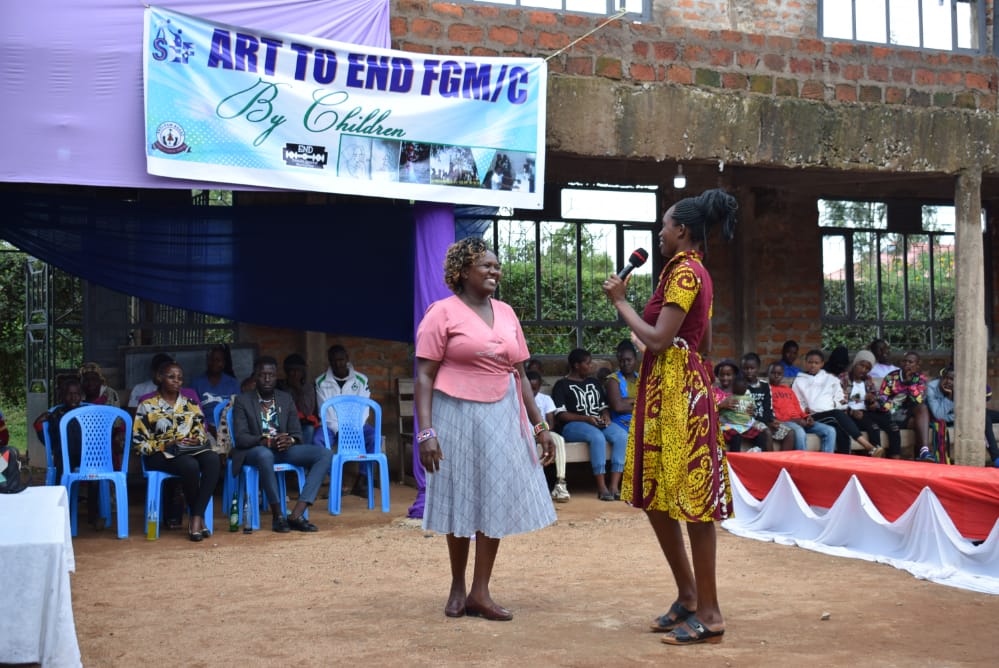
We had the pleasure of interviewing Christine Alfons, founder and Executive Director of the Safe Engage Foundation, a youth-led organization in Kuria, Kenya, working to end female genital mutilation (FGM) and all forms of gender-based violence through mentorship and empowerment. What prompted you to start the Safe Engage Foundation? I grew up in a community where the practise of cutting was really valued, but my father was actually able to learn quite early on that FGM doesn't have any benefit for girls. And so he protected me and my sisters against the cut. His refusal to allow this practice was seen as a very big taboo, and we believe that it is what led to him being killed. He died for us, and so we do what we can to make our father proud, wherever he is. After my dad’s death, I was really determined to protect my sisters and others, and it was at that moment I realized that I can help by volunteering. So when I graduated from high school, I started volunteering with local organizations and NGOs. I did this with a group of other people, and in 2016 we decided that we're going to start our own organization. So then that is when the Safe Engage Foundation was born. My main motive is to empower and educate girls on the need to abandon FGM, and to teach them why they should embrace their sisters, both those who are cut and those who are not. What does the Safe Engage Foundation do? We run youth mentorship programmes, and we have programmes in schools that run weekly and monthly, called the Hold My Hand Initiative and EnlightenUs, respectively. We target both boys and girls to teach them life skill sessions, as well as running SRHR [sexual and reproductive health and rights] sessions. We teach the youth about their bodily autonomy, and about how young girls can protect themselves against FGM and child marriage, and how to report it if it is happening or might happen to them. We also teach why brothers need to protect their sisters against these things. I have come to realize that there are very many young people who can actually act as role models, to other young girls and boys, to be able to grow in a community where they know that they can protect each other and stand up for each other. We also engage parents at meetings in schools, particularly those who still think FGM is the way to go. We teach them positive parenting issues – why women's and girls rights are human rights and why they need to be upheld, and that FGM is actually a violation of those rights. We work with them until we can see like their attitudes are changing. These issues are also related to economic empowerment. We found that women who are not economically empowered (i.e. don’t have an income) cannot make informed decisions about their own body or households. Many girls drop out of school at 15 to get married, or because of the stigma of not being cut, so they don’t have any employable skills into their 20s or 30s or older. So we train them to use their hands to make some items that they can sell, and also use the income that they have generated to reinvest again and keep making money that way. This income also helps them keep their own children in school, so they can in-turn evade child marriage. Since we founded the programme, it has been entirely volunteer-run.
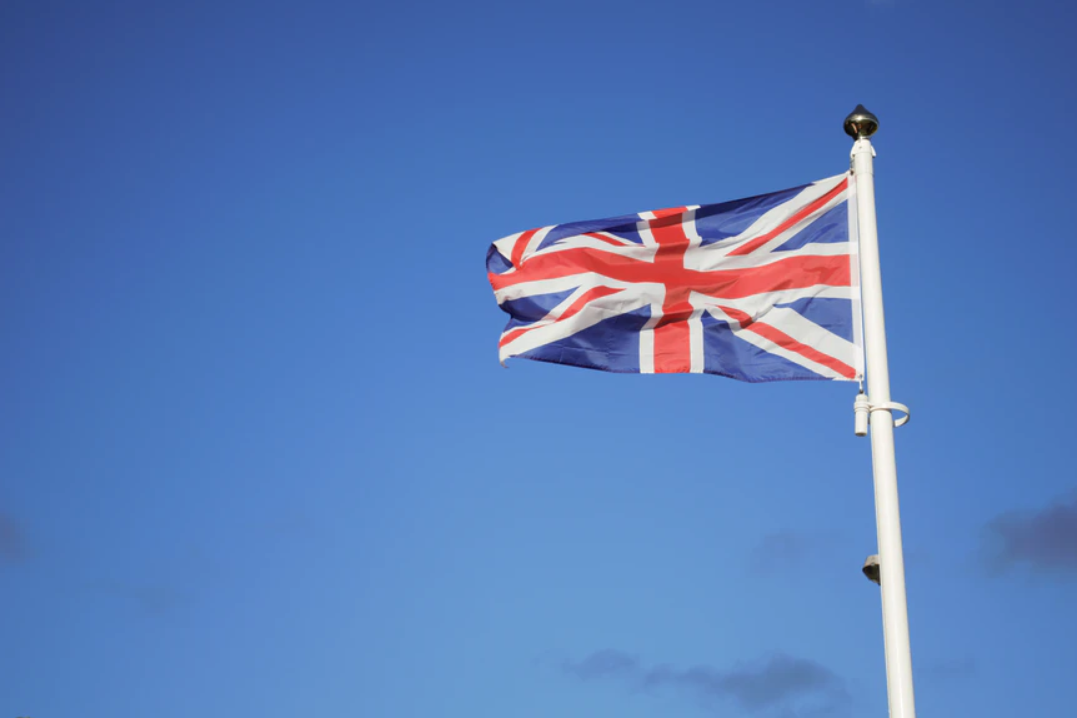
If you are covering the UK autumn budget and reporting on foreign aid, you may find the below statement from the International Planned Parenthood Federation (IPPF) helpful: “The UK government has already decimated the aid budget and its reputation through severe economic mishandling, cutting billions from the very things that protect people during economic, political and social upheaval, including life-saving sexual and reproductive healthcare. “It is also the only country to be spending the majority of its dedicated overseas aid budget within its own borders, taking advantage of legislation to pay for refugee and asylum costs in the UK rather than increasing domestic and overseas budgets accordingly. “The UK government cannot continue to fight the fire of one humanitarian crisis by diverting much-needed resources from other vulnerable people, nor continue to balance its books on the backs of the poorest people in the world - who, as MP Andrew Mitchell stated, will be damaged, maimed, or die as a result. “This government promised to give women and girls the freedom they need to succeed and prevent the worst forms of human suffering worldwide. If it is to deliver on its promises and revive its sunken reputation, it must spend dedicated budgets correctly, support people in the UK and beyond appropriately, and MP Andrew Mitchell and the Chancellor must ensure a return to the 0.7% as soon as possible.”

28 January 2022 heralds one year since President Biden rescinded the harmful Global Gag Rule (GGR). Otherwise known as the Mexico City Policy, its expansion in 2017 under Trump affected 12 billion dollars of funding, impacting thousands of life-saving healthcare services worldwide – especially across low-income countries. But while rescindment is a positive first step, the long-term harm of the Global Gag Rule lingers on. For IPPF, 53 healthcare projects in 32 countries were hit, with some Member Associations losing up to 60% of their funding. Programmes affected include HIV prevention and care, maternal health and nutrition, STI services, gender-based violence prevention, and services for vulnerable children. And although we have begun to re-establish long-standing partnerships, it takes time for funding to flow and to re-open closed healthcare clinics and community services – with some lost forever. In the meantime, there are women and girls who desperately need healthcare that have nowhere to turn. But in February, the US Congress has an opportunity to change the sexual and reproductive health landscape forever through a final negotiated funding bill that includes a permanent end to the deadly Global Gag Rule. As we celebrate one year of rescindment, we know the work is not done yet, but we are hopeful for the futures of millions of women and girls worldwide. We urge the US Congress to permanently repeal the Global Gag Rule to fully eradicate the lasting impact of the Mexico City Policy that has harmed women and girls around the world for 40 years. Dr Alvaro Bermejo, Director-General of the International Planned Parenthood Federation, said: "Five years ago, Trump expanded the Global Gag Rule, a devastating neo-colonialist policy that forbids US aid to any organization that supports access to safe abortion care, disproportionately affecting women and girls in low-income countries. Today we mark one year since President Biden rescinded it, but the long-term harm and impacts don't simply go away. "The Gag Rule is a callously designed mechanism set up to deny women and girls the right to decide what happens to their bodies. Its implementation doesn't just destroy life-saving abortion services but erodes access to other sexual and reproductive healthcare, including contraception, leading ultimately to increases in unintended pregnancy and forcing many to turn to unsafe and dangerous abortion methods. "While rescindment is a positive first step, the looming threat of reinstatement under future anti-rights administrations undermines the sustainability of global sexual health programs and the pace of progress. After 40 long years, the time to act is now – we urge the US Congress to end this political game and stand up for the futures of millions of at-risk women and girls by permanently repealing the Global Gag Rule. "By leaving a legacy that gives hope and stability to the sexual and reproductive health of people worldwide, the US will once again be a champion, leader, and innovator of human rights for all." For media inquiries please contact [email protected]
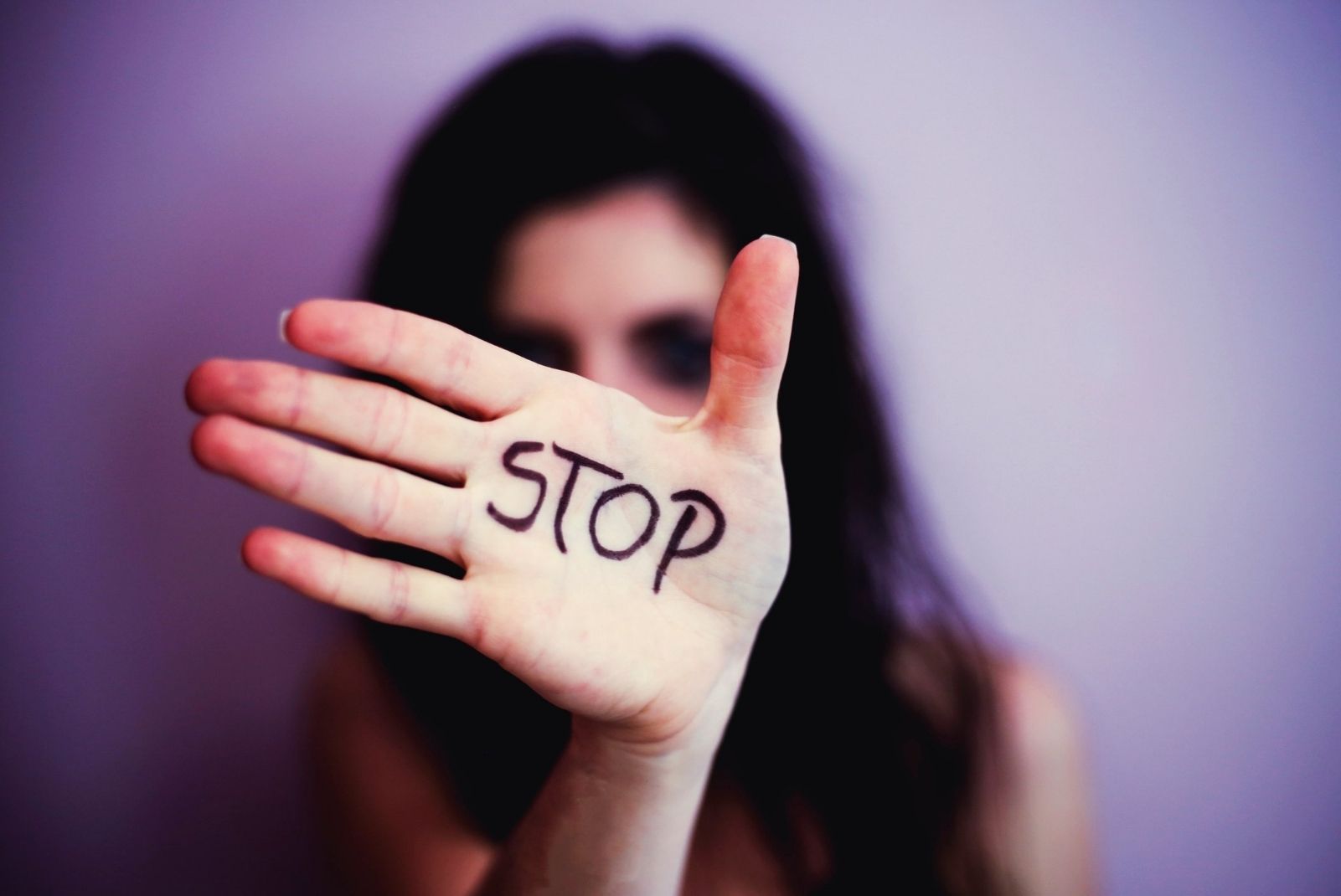
The 16 Days of Activism against Gender-Based Violence (GBV) kicked off on November 25 – the International Day for the Elimination of Violence against Women, and ends today 10 December – Human Rights Day. Gender-based violence refers to harmful acts directed at an individual based on their gender and is rooted in gender inequality, the abuse of power and harmful norms. Sexual and gender-based violence (SGBV) is a human rights violation and a public health issue. It can include physical, sexual, economic, and psychological violence, as well as threats, coercion, child and early forced marriage, female genital mutilation, and so-called ‘honour killings. Sadly, it is estimated that one in three women (35%) of women worldwide will experience sexual or physical violence in their lifetime. This figure has remained largely unchanged for the last decade. Violence against women and girls also disproportionately affects low-income countries. To mark the 16 Days campaign, here are 16 ways to help end violence against women and girls. 1. Listen to survivors and believe them It takes a lot of courage to share experiences of gender-based and sexual violence, and knowing that their experiences are heard can aid healing and encourage more survivors to speak out. 2. Increase the visibility of young women and girls in discussions concerning their sexual and reproductive healthcare and rights All conversations leading to policy change should be led by and involve survivors. A ‘survivor-centred’ respectful approach to sexual and gender-based discussions can encourage other survivors to come forward without fear of stigma. 3. Stand up against the normalization of sexual violence in all its forms Rape culture is the social environment that allows sexual violence to be normalized and justified. Acknowledging the normalization of sexual violence is the first step to dismantling it, and educating men and boys on positive masculinity, respectful relationships, and consent are just some ways to disrupt it. Leaders respecting, protecting and fulfilling human rights obligations to gender equality can help too. 4. Call for adequate support services Many women and girls lack access to the most basic free essential services for their safety, protection and recovery, such as emergency helplines, safe accommodation, proper police and justice responses, sexual and reproductive health care and psycho-social counselling. Where these services exist, they are underfunded and understaffed. Governments must provide free support for survivors of gender-based violence, including comprehensive training for health providers. Individuals can support campaigns that demand adequate funding for support services. 5. Comprehensive sexuality education Comprehensive sexuality education is vital to teach young people about bodily autonomy, their relationships with each other and to help them understand that freely given consent is mandatory every time. Equipping young people with knowledge about their rights and healthy and safe relationships has a long-term positive effect on their health and well-being. 6. Educate young people but also listen to them Education is essential, but listening to young people’s experiences is also crucial to empowering the next generation. If young people feel heard, they are more likely to want to instigate change. 7. Data is key – utilize it One in three women and girls will experience physical or sexual violence in their lifetime, and learning the statistics means you can share the right information when needed. Collecting and utilising relevant data is also vital for governments to implement successful prevention measures and provide survivors with the right support, especially when reaching marginalised and underserved women. Legislations and policies should also cover comprehensive definitions of all forms of sexual gender-based violence. 8. Take time to educate yourself on gender-based issues Learn the signs of gender-based violence and abuse and how to help someone in need. There is support for survivors of gender-based violence if you know where to look, and action today could help save someone’s life tomorrow. 9. Challenge gender norms that lead to gender inequality Harmful gender norms can lead to gender inequality and, in turn, higher rates of gender-based violence. For example, gender norms can keep girls out of education and higher paid work, limiting their independence, increasing their financial dependence on men and making it difficult to leave violent situations. Gender norms can also leave the voices and experiences of girls undervalued and ignored. By challenging and changing harmful social norms, we can increase gender equality and reduce gender-based violence. 10. Hold yourself and other people accountable Accountability means taking responsibility for your actions and knowing that your actions can directly affect others. Challenge your peers to reflect on their behaviour and speak up when someone crosses the line. 11. Support each other and condemn violence against women Together we stand divided we fall. Supporting women and those working to end gender-based violence is essential to achieving gender equality and ending violence against women; this includes government’s and leaders condemning all acts of violence and discrimination against women. Individuals can support a survivor, share a post on social media or volunteer on a helpline. By supporting each other, we can help create a safer environment for everyone. 12. Donate to and fund women’s rights organizations The COVID-19 pandemic has left many women and girls trapped in closed environments with their abusers. Even a small amount to an organization working to combat gender-based violence can make a difference, especially when so many organizations are struggling with reduced funding but increased demand for services. Donating toiletries, sanitary products, clothes, bedding and toys to a local women’s refuge or support service for women and their children who have escaped domestic violence situations can help too. When people and governments recognise women’s rights organizations as expert partners in the fight to end violence against women, everyone benefits. 13. Use social media Using social media platforms to start a conversation and show solidarity with survivors of gender-based violence is just a small act that can create change in communities. 14. Share success stories, positive role models and solutions that work When people see positive role models and solutions, they feel more empowered to help make a difference too. Positive and diverse representation is also important. 15. Protect women and girls in digital spaces Gaps in criminal laws mean that misogyny is rife in digital spaces, with women and girls subject to online harassment, cyber-flashing, revenge porn and other forms of digital gender-based violence. Laws must be designed to protect women, with proper content moderation systems in place. 16. Understand that it takes everyone to make a change Any successful effort to end violence against women must involve everyone. This includes governments and leaders, and people who commit violence or tacitly condone it. We can’t end violence against women alone.
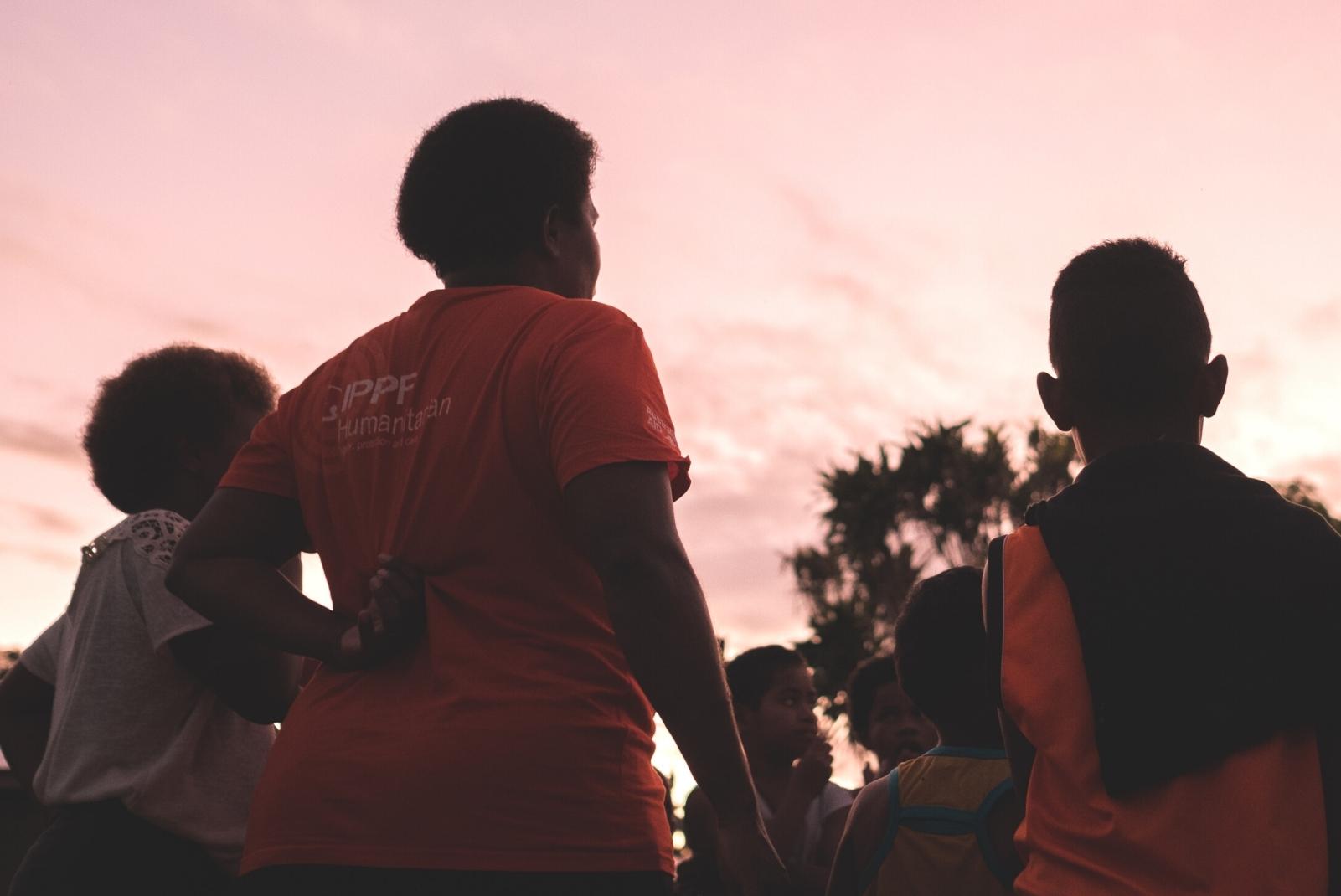
With a tiny population of just under 200,000 people, data shows that people in the Polynesian Island nation of Samoa on average enjoy a higher quality of life than other countries in the Pacific. And in July 2021, Samoa elected its first female Prime Minister, Fiama Naomi Mata’afa, which generated hope and excitement for more progress for women and girls. But the Prime Minister has her work cut out for her; during the country’s Universal Periodic Review at the United Nations Human Rights council in November, the need to address gender-based violence was a recurring issue. "There is a significant problem with violence towards several different vulnerable groups in Samoa, particularly people of sexual and gender minorities, people with disabilities, women and girls, and children," said Thalia Kehoe Rowden, a representative of the Initiative. Alarming rates of SGBV Like nearly every other country around the world, the Pacific Islands are prone to sexual and gender-based violence (SGBV) – a critical human rights issue that pervades many aspects of society. Global estimates published this year by the World Health Organization indicate that about 1 in 3 (or roughly 736 million) women worldwide have experienced either physical and/or sexual intimate partner violence or non-partner sexual violence in their lifetime – an alarming figure that remains unchanged for the past decade. According to a 2018 National Public Inquiry into Family Violence almost nine in 10 Samoan women have experienced physical or emotional violence from family members, six out of 10 have experienced intimate partner violence and one in five women have been raped. “In Samoa, SGBV is a great concern. It is an issue that requires immediate action at the national level,” said Lealaiauloto Liai Iosefa-Siitia, the Executive Director of the Samoa Family Health Association (SFHA). “Samoa needs a holistic approach to reduce the risks of SGBV. All partners should come together and establish a better coordinated and effective way of addressing the issue.” An IPPF Member Association, SFHA provides reproductive health and family planning services through a permanent clinic in the capital city of Apia, and a mobile unit which visits rural areas and the outer islands to provide educational and contraceptive services. A data deficit But according to Iosefa-Siita, the greatest challenge in tackling SGBV in Samoa is a lack of data. “Data on SGBV is not properly coordinated and disaggregated,” she said. “These challenges may be due to questions of who is responsible for what type of data, who is the national agency responsible, who are the service providers and many more.” Since 1995, there have been four major studies into the prevalence of SGBV in Samoa. But the length of time between each of these studies makes it difficult to identify trends in reporting violence or the potential impact of new interventions and services. However, steps are being taken at a policy level. The Government of Samoa recently launched inclusive governance, family safety and gender equality policies and the Ministry of Women, Community and Social Development has developed an Interagency Essential Services Guide that helps guide service providers on the elimination of GBV. SFHA is also developing a Standard of Procedures which incorporates a referral pathway for victims of SGBV at a national level. “We continue to advocate for sexual and reproductive health rights as one instrumental aspect for the prevention of SGBV at the national level through contribution to national guidelines such as the Interagency Essential Services Guide, the Family Safety Bill by the National Human Rights Institute, the National Policy on Disaster Risk Management and others,” said Iosefa-Siita.

London, Friday 16th July 2021 - The International Planned Parenthood Federation (IPPF) has today revealed it has sent a pre-action letter to the Government following the Foreign, Commonwealth and Development Office's (FCDO) termination of IPPF’s ACCESS project funding, based on the Government’s unlawful decision to cut the foreign aid budget. The UK's foreign aid spending is enshrined at 0.7% of GNI in the International Development (Official Development Assistance Target) Act 2015. The Government’s cuts, which reduce aid contributions to 0.5% of Gross National Income (GNI) and amount to a staggering £4.5 billion, will have a catastrophic impact on millions of the world's most vulnerable people, especially women and girls who have now been consigned to a bleak and uncertain future. Having sought legal advice, IPPF believe that the Government's unilateral decision to reduce the percentage of GNI without amending the primary legislation under the International Development (Official Development Assistance Target) Act 2015 is unlawful, making any decision of the FCDO based on the cuts unlawful too. Under the proposed aid reduction, the IPPF is expected to lose £14.2 million in funding over the next three years despite an Accountable Grant Agreement (AGA) with the FCDO to support sexual and reproductive health service delivery until December 2023. Under the AGA, the FCDO was committed to providing up to £21 million for the U.K. Aid Connect ACCESS Consortium's efforts to enhance the sexual and reproductive health rights of some of the world's most marginalised and underserved people, including those living in extreme poverty, those living in humanitarian crises and those affected by HIV and AIDS. The consortium, led by the IPPF, specifically focused on providing support to groups in Lebanon, Mozambique, Nepal and Uganda. The vote taken on Tuesday in the House of Commons was not capable of legally amending the primary legislation, a necessary step for making the cuts lawful. Unless the Government reverses its position, IPPF will proceed with filing for a judicial review. Dr Alvaro Bermejo, Director-General of the International Planned Parenthood Federation, said: "Since IPPF became aware of the Government's plans to slash the U.K.'s aid budget, it has taken every opportunity to demonstrate the unlawfulness of these cuts and the catastrophic impact they will have on millions of women, girls and marginalized people worldwide, and the thousands of lives that will be lost in the process. "Sadly, the Government has not heeded our warnings, instead choosing to terminate the ACCESS grant. This means IPPF has been forced to send a pre-action letter to the Secretary of State, seeking an urgent review of the decision. We were further disappointed with yesterday’s motion in the House of Commons to introduce long lasting changes without going through due legislative process. "IPPF has not taken this decision lightly. This action is about fighting the injustice of the Government's ruling on behalf of the women and girls we serve and honouring the intent of IPPF and its member associations." In addition to the decision IPPF is seeking to have reviewed, the Government’s unlawful cuts to the foreign aid budget have had wider effects on IPPF. In total, IPPF could lose up to £72 million in funding over the next three years despite a commitment from the FCDO to support sexual and reproductive health care delivery. The loss of funding for IPPF means massive reductions and the potential closure of the U.K.'s flagship WISH (Women's Integrated Sexual Health) programme. This hugely successful initiative delivers life-saving contraception and sexual and reproductive health services for women and girls in some of the world's poorest and most marginalized communities. If allowed to continue operating until 2023, it would prevent an additional 7.5 million unintended pregnancies, 2.7 million unsafe abortions and 22,000 maternal deaths. Without additional funding, IPPF will be forced to close services in Afghanistan, Bangladesh, Zambia, Mozambique, Zimbabwe, Cote D'Ivoire, Cameroon, Uganda, Mozambique, Nepal and Lebanon and may be forced to close services in an additional nine countries, withdrawing support for sexual and reproductive health services from approximately 4,500 service delivery points globally. Sadly, it will also mean the loss of over 480 IPPF staff supporting SRH service delivery in the FCDO supported countries. IPPF invites the Secretary of State to reinstate the aid budget and confirm the Government's commitment to the 0.7% aid target as a means of keeping its legally binding promises to millions of people worldwide. Notes to Editors: The International Planned Parenthood Federation (IPPF) is a UK based charity committed to providing sexual and reproductive support to the world's most under-served communities. The IPPF operates in 142 countries, relies on volunteers and regularly receives financial support for national governments to support their global work. Under the FCDO's unlawful reduction of UK foreign aid contributions to 0.5% of Gross National Income, the IPPF is expected to lose £14.2 million earmarked for support to vulnerable communities in Lebanon, Mozambique, Nepal and Uganda. The IPPF’s case against the Government is independently financed and no taxpayer money is being used to fund legal costs.

The Generation Equality Forum (GEF) is a global multi-stakeholder platform to reignite the worldwide commitment for gender equality, convened by UN Women and the governments of Mexico and France. The Forum kicked off in Mexico City, Mexico, on 29 – 31 March 2021, and culminated in Paris, France, on 30 June – 2 July 2021, with the aim of securing a set of concrete, ambitious, and transformative commitments to achieve irreversible progress towards gender equality; bringing together governments, civil society organizations, young people-led organizations, the private sector and foundations to define and announce ambitious investments and policies on a range of priority areas, from climate change to sexual and reproductive health and rights (SRHR), gender-based violence, feminist movements, technology and economic justice. IPPF is proud to be one of the co-leads of the Action Coalition on Bodily Autonomy & SRHR, which aims to: Expand access to comprehensive sexuality education (CSE) in and out of school Increase qualitative access to contraception Empower all people, including adolescents and women, in all their diversity to make autonomous choices about their bodies, sexuality and reproduction Strengthen girls, women’s and feminist organizations and networks to promote and protect bodily autonomy and SRHR. IPPF has joined the two collective commitments of this Action Coalition on abortion and CSE. IPPF’s individual commitment at GEF By 2026, IPPF commits to work to accelerate universal access to safe abortion care centered on three principles – rights-based, reproductive justice and gender transformative – with a focus on the following strategies: Expand and improve the provision of abortion care through 102 Member Associations, including quality medical and surgical abortion, person-centered abortion self-care support, and abortion care beyond 12 weeks of gestation through a simplified outpatient model using task-shifting to mid-level providers, including self-managed medical abortion. Fully integrate abortion care into humanitarian preparedness and response as full realization of SRHR, with all IPPF emergency responses providing abortion care as a standard part of the Minimum Initial Service Package (MISP). Advocate for the decriminalization of abortion and the removal of coercive policies and legislation on abortion in 25 countries, and advocate to donor governments and agencies to remove restrictions preventing work and dialogue on abortion, including the permanent repeal of the Global Gag Rule. IPPF is also pleased to announce that it will be working with the Governments of Canada, Denmark, Finland, Germany, Japan, New Zealand, Norway, Sweden and the Netherlands to help realize universal access to sexual and reproductive health and rights and CSE. IPPF’s Director-General, Dr Alvaro Bermejo, said: “Since Beijing, progress has been made towards gender equality, yet not a single country can claim to have achieved it. It’s simple; women and girls cannot wait any longer to live a life free from discrimination, free from gender-based violence and free from harmful patriarchal gender norms – we must replace rhetoric with meaningful action. "As co-leaders of the Action Coalition on Bodily Autonomy and SRHR, we are convinced that you cannot achieve gender equality without SRHR, and urge that it be at the center of policies and decision-making processes. IPPF, alongside its partners and Member Associations, will turn our commitments into meaningful action that accelerates our shared goal of achieving gender equality.” IPPF’s Global Advocacy Director, Anamaria Bejar, added: “Women and girls cannot afford more broken promises. Now is the time to renew our determination to make the Beijing Platform for Action a reality for every woman and girl in the world, to live with dignity and reach their full potential. That is why IPPF wholeheartedly support the Generation Equality Forum and what it stands for. Together, we can meaningfully work towards gender equality in our lifetime.”